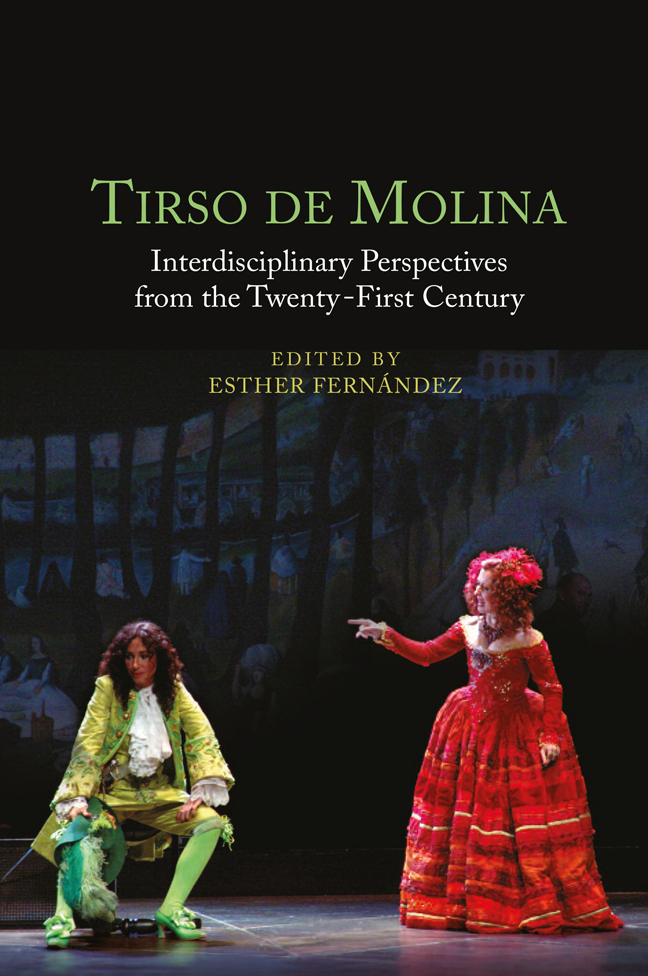18 - Performing Gender on the English-Language Stage: Tirso’s Queer Characters
Published online by Cambridge University Press: 02 March 2024
Summary
Tirso de Molina is perhaps best known for his particular characterization of the mujer vestida de hombre role. His cross-dressed women are not simply androgynous; instead, they break down the gender binary. By virtue of their disguises, these women have physically sexualized, even romantic, moments with other female characters. Male characters are at times attracted to these cross-dressed women; the resulting triangular love plots, and the ambiguities at work in their subsequent identities and desires, produce moments ripe with queer potential. But it is not just Tirso’s cross-dressed characters that present as gender-fluid; sometimes it is even the ostensibly “straight” damas who traverse rigid gender lines. Tirso introduces homoerotic stage pictures, unrequited desire, ambiguous dialogue, and even silence on the part of otherwise powerful female characters.
Over the years, I have collaborated on several productions of such plays by Tirso. What has emerged, both in my study of the play texts and the experience of staging these plays, is the dramatist’s nonnormative, queer approach to characterization by means of a fluid sense of gender identity in his characters. In this chapter, I examine Tirso’s writing through the lens of performance, drawing upon examples from three productions (2009–2016) to show how various production teams were inspired by Tirso’s writing to create moments rich with potential for queer analysis. While my analysis of Marta la piadosa [Marta the Divine] (c. 1614–1615) explores the play through cross-gender casting in performance, I use El amor médico [Love the Doctor] (c. 1621) to examine a play that features a cross-dressed character. Finally, the section on La celosa de sí misma [Jealous of Herself] (c. 1622–1623) explores female spectatorship thematically.
Marta la piadosa
The titular character in Tirso’s Marta la piadosa traverses and blurs rigid gender distinctions, at once deploying the stereotypical characteristics of “womanness” itself—weakness and submissiveness—and masculinity to her personal benefit. The play opens with news that Marta’s brother has been killed by her lover Felipe, which forces her father Gómez to find a replacement: an elderly friend of the family. To avoid marriage, Marta feigns a religious conversion. At the opening of Harley Erdman’s translation/adaptation Marta la piadosa at UMass in 2009, the actor playing Marta (Monica Giordano) performed exaggerated femininity: a heightened version of her feminine self.
- Type
- Chapter
- Information
- Tirso de MolinaInterdisciplinary Perspectives from the Twenty-First Century, pp. 271 - 284Publisher: Boydell & BrewerPrint publication year: 2023



